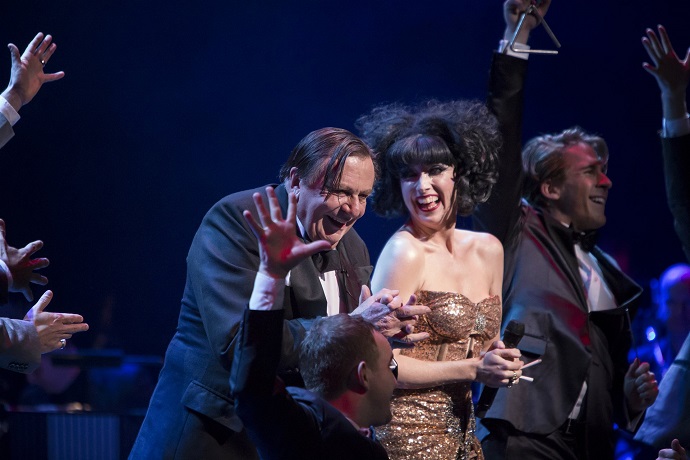
Cadogan Hall, London
Cadogan Hall was dimly lit and smoke filled, like some subterranean saloon, when the fedora-wearing musicians of the Australian Chamber Orchestra emerged. Hackneyed though these speakeasy references have become, they were apt for an evening of music from Weimar Germany, much of it not heard since the 1920s and 30s. Yet what could have been yet another Cabaret spin-off was redeemed not only by the authenticity of the music, but also by the collective talents of the ACO, diva-singer Meow Meow, and the evening’s velvety Master of Ceremonies, Barry Humphries.
Humphries will forever be known as the gladioli-bespectacled Dame Edna Everage, yet his Weimar literary pedigree is impeccable. Son-in-law of Stephen Spender and friend to Christopher Isherwood, Humphries came across a suitcase of Viennese-Jewish sheet music from the era in a second-hand bookshop in Melbourne, Australia. More than sixty years on, he has put together Weimar Cabaret, an evening of works by little-known composers who were later exiled or killed by the Nazis, dotted with more familiar Kurt Weill hits.
The modernist-inflected jazz idiom of this so-called ‘degenerate’ music captured a myriad of moods. The evening started with Paul Hindemith’s Kammermusik No. 1 (1922) – a wild, clangourous evocation of a newly liberated Berlin – and concluded with the wistful lyricism of Friedrich Hollaender’s song, ‘The Ruins of Berlin’ (1948) – sung by Meow Meow and Humphries in the three languages of the city’s occupying powers.
The diva’s limber choreography and precise vocals were a foil for Humphries (now 82), and you felt that her performance was more constrained than it would have been, had she been left to her own devices. At times she indulged the exaggerated femininity of cabaret, with its corsets and red furs. At other times however this female objectification was wryly satirised, for instance in Schulhoff’s Sonata Erotica – a fully notated female orgasm which Meow Meow cut short for an on-stage toilet break.
Elsewhere, lead violinist Richard Tognetti performed an outstandingly rasping, rattled solo in Wilhelm Grosz’s Jazzband, which he later contrasted with a gliding rendition on the Stroh-violin, a string instrument with a trumpet horn improbably attached. He and the ACO played faultlessly throughout, fully justifying the evening’s all-Australian line up. The collection of pieces was ragtag, yet it captivatingly summed up that most memorable of 20th-century époques. ![]()